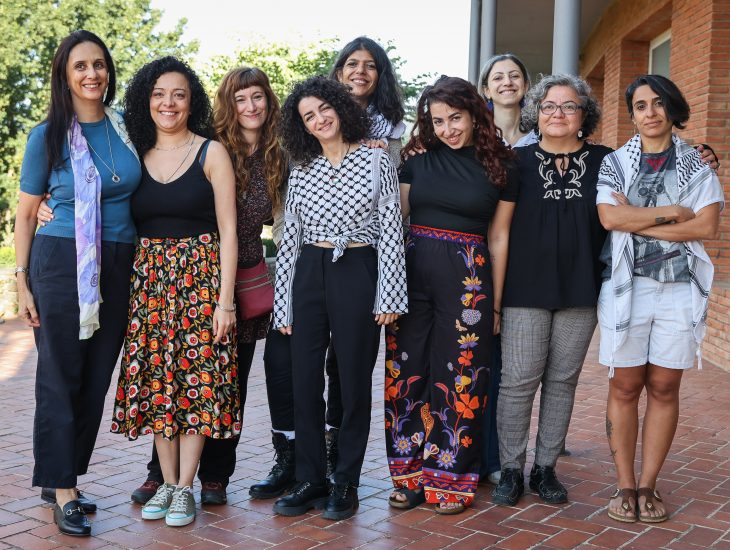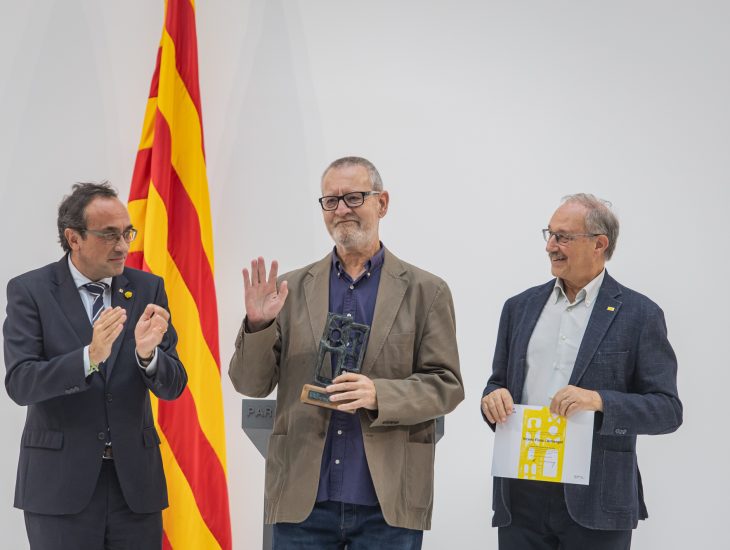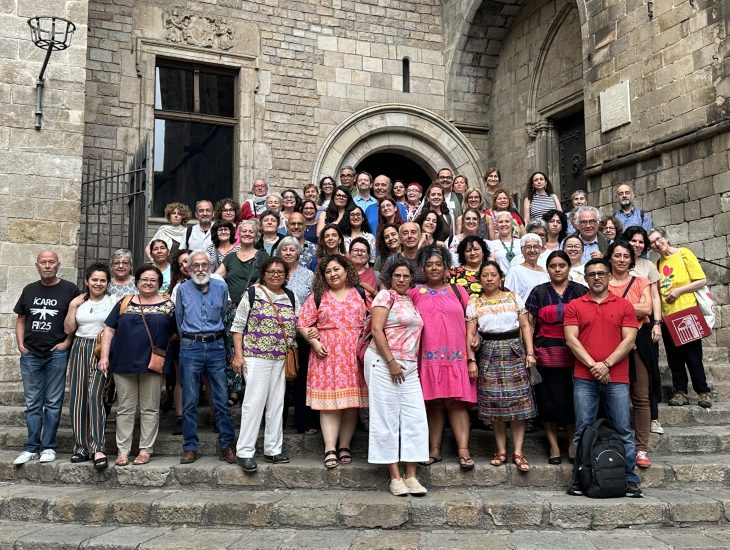The International Catalan Institute for Peace (ICIP) and Democratic Memorial have celebrated the Fourth International Colloquium “From Past to Future: Memory and Transition Processes”. In this event, various transitional processes that have taken place around the world since World War II were analyzed.
The colloquium, featuring twenty speakers and a hundred attendees, was opened on Monday, November 30, in a ceremony chaired by the Minister of Governance, Meritxell Borràs, ICIP president Rafael Grasa, and the director of Democratic Memorial, Jordi Palou-Loverdos. The opening lecture was given by Maria Clara Galvis, a member of the UN Committee Against Forced Disappearances, who defended the role of the United Nations “as a guarantor of the establishment of truth, justice, and the reparation of past abuses” and stressed the need to empower victims of conflict as rights holders and to oblige states to investigate crimes and human rights violations.
Transition strategies
On December 1 and 2, several round tables discussed the various strategies, both judicial and non-judicial, that characterize transition processes, whether from dictatorship to democracy or from violent conflict to peace. First of all, Professors Ricardo Martín de Guardia and Alberto Pellegrini dealt with post-World War II transitions (the cases of Germany, Italy and Japan, and the situation of collaborationist countries, such as France, Belgium or Holland); Professors Claudia Jiménez and Rosa Ana Alija focused on the principles of the Nuremberg and Tokyo tribunals, which have marked the essence of international criminal law, and the trials against Nazism; and Professors José María Faraldo and Marició Janué dealt with the political transitions in Eastern European countries after the fall of the Berlin Wall, in this case marked by the consolidation of democracy, the acceptance of a capitalist economy and European integration.
In this first part of the colloquium, the post-Cold War international system was also dealt with, by Professor Rafael Grasa; the current functioning of the International Criminal Court, by the prosecutor Fabricio Guariglia; the International Tribunals for the former Yugoslavia and Rwanda, by the criminal law expert John Philpot; universal justice in Spanish courts, by Professor Manuel Ollé; and the international courts of opinion, by Professor Antoni Pigrau.
Truth Commissions
The second part of the colloquium was focused on the analysis of Truth Commissions as a mechanism of transitional justice: their ability to transform a conflict, clarify the facts, recognize responsibilities and work for forgiveness and reconciliation. “Truth commissions have very high expectations and often generate frustration,” according to both Mark Freeman, director of the Institute for Integrated Transitions, and Ferriol Soria, director of the Ernest Lluch Foundation, who focused on the case of South Africa. In addition, Tunisian journalist and member of the Truth and Dignity Commission of Tunisia, Seif Soudani, analyzed the democratic transition in Tunisia.
The colloquium also focused on processes of justice, preservation of memory and reparation for victims in the Basque Country and Colombia, with presentations by Aintzane Ezenarro, director of the Institute for Memory of the Basque Country, and María Camila Moreno, of the International Center for Transitional Justice. Both speakers emphasized the need for “addressing memory from a critical look at the past” and the fact that “memory corresponds not only to the victims, but to society as a whole.”
Memory and justice in Catalonia and Spain
Finally, the colloquium discussed the democratic transition in Spain and Catalonia, with Professor Borja de Riquer; Argentine judicial action regarding Franco-era crimes, with Professor Anna Messuti; and the possibility of establishing a Truth Commission on the crimes of the Civil War and the Franco regime, in a round table with lawyers Antoni Cruanyes and Magda Oranich, and Professors Josep Maria Solé i Sabaté and Assumpció Malgosa.
Professor Borja de Riquer was very critical of public policies of memory at the state level: “In a democratic state, a policy on the dissemination of the past is necessary so that previous injustices are not ignored. And the political balance sheet of Spanish public policies of memory is objectionable, with the exception of Catalonia.” In this regard, De Riquer praised the work carried out by Democratic Memorial.
De Riquer defended “the political necessity of creating a Truth Commission in Catalonia,” as did the other speakers. “Everyone who has fought for freedom and democracy has the right to memory,” said Josep Maria Solé i Sabaté. “The only option for the future is to know what happened and go over all the episodes rigorously,” said Assumpció Malgosa. Meanwhile, Josep Cruanyes explained that a Truth Commission in Catalonia “is especially necessary considering the way the Spanish transition was done,” and Magda Oranich recalled that “there are many ways to compensate the families of victims of the Franco regime in a society that wants to be just.”
03.01.2015




